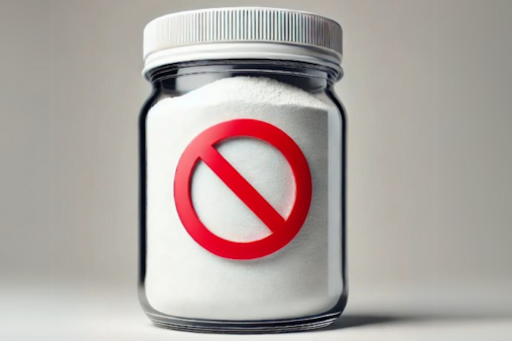|
|
|
|
|
|
|
Welcome to Your Daily Dot where Dot will share tips, advice, and stories on how we can make our world better. |
|
|
|
|
|
|
|
If you purchase anything via one of our links, including from Amazon, we may earn a small commission.
All Dear Dot illustrations by Elissa Turnbull. |
|
|
|
Dear Reader,
You likely bring reusable bags to the grocery store, thanks to policies that make plastic bags obsolete or costly. But what about those flimsy plastic produce bags? Even grocery stores that have phased out plastic bags for carrying home your groceries still have plenty of plastic in the produce aisle.
Enter University of Toronto Climate Champ Diego Arreola Fernández, who’s been researching ways to encourage a transition away from throwaway produce bags.
Arreola Fernández positioned himself at various grocery stores in Toronto, watching to see how people used (or didn’t) the plastic produce bags. According to a story in the National Observer, his “analysis concluded that about 2,000 plastic produce bags are used every day at every grocery store.” Scaling that to all the stores in the city, he concluded, “it’s hundreds of thousands of bags used in one day.” And data tells us that almost all of those bags are destined for landfill.
Arreola Fernández wanted to see if consumer behaviour could be shifted. Working with a grocery store chain over three months, he started by posting signage making clear the impact of plastic bags and the positive benefits of mesh reusable bags. He then tested making mesh bags easily accessible and available for purchase. Finally, he tested making the mesh bags free. Not surprisingly, the free option garnered the most positive response, with a fivefold increase in people choosing to use a mesh bag.
There are still hurdles. Most stores don’t want to ban plastic produce bags if other chain stores won’t. They worry consumers will just switch where they shop.
But it’s worth noting that, when alternatives are made accessible and affordable, people are quick to switch their habits.
While Dot has mesh bags, I frequently forget them. When that’s the case, I simply avoid bags altogether, putting produce straight into my cart. Plenty of produce gets peeled when I get home (oranges, lemons, bananas) and the rest gets washed, making a plastic bag unnecessary. How do you handle produce? Share your tips!
Alternatively,
Dot
|
|
|
|
|
|
Paid Advertisement with Belay |
Cut Costs. Not Corners.
|
 |
|
Economic pressure is rising, and doing more with less has become the new reality. But surviving a downturn isn’t about stretching yourself thinner; it’s about protecting what matters most.
BELAY matches leaders with fractional, cost-effective support — exceptional Executive Assistants, Accounting Professionals, and Marketing Assistants — tailored to your unique needs. When you're buried in low-level tasks, you lose the focus, energy, and strategy it takes to lead through challenging times.
BELAY helps you stay ready for whatever comes next.
|
| Download The Smart Leader’s Recession Survival Guide and discover how to lead smarter through uncertainty. |
|
|
|
|
|
|
 |
|
Don’t let your clothes contribute to textile waste. Instead, use visible mending to stitch and embroider simple designs using colorful string or beads to cover or accentuate the flaws.
For more Bluedot Climate Quick Tips, click here. |
|
|
|
|
|
Paid Advertisement with NativePath |
What Collagen Companies Don't Want Seniors to Know
|
 |
|
Why do some people see amazing results with collagen while others notice nothing at all? The answer isn't in your age or biology – it's hidden in the supplement label. Most consumers over 50 are missing 5 crucial signs that reveal whether their collagen supplement is the real deal or just expensive protein powder. Before you spend another dollar on collagen, discover what leading researchers say you must look for. This could be the most important label-reading lesson you'll ever get.
|
| Learn More |
|
|
|
|
|
|
|
|
|
|
|
|